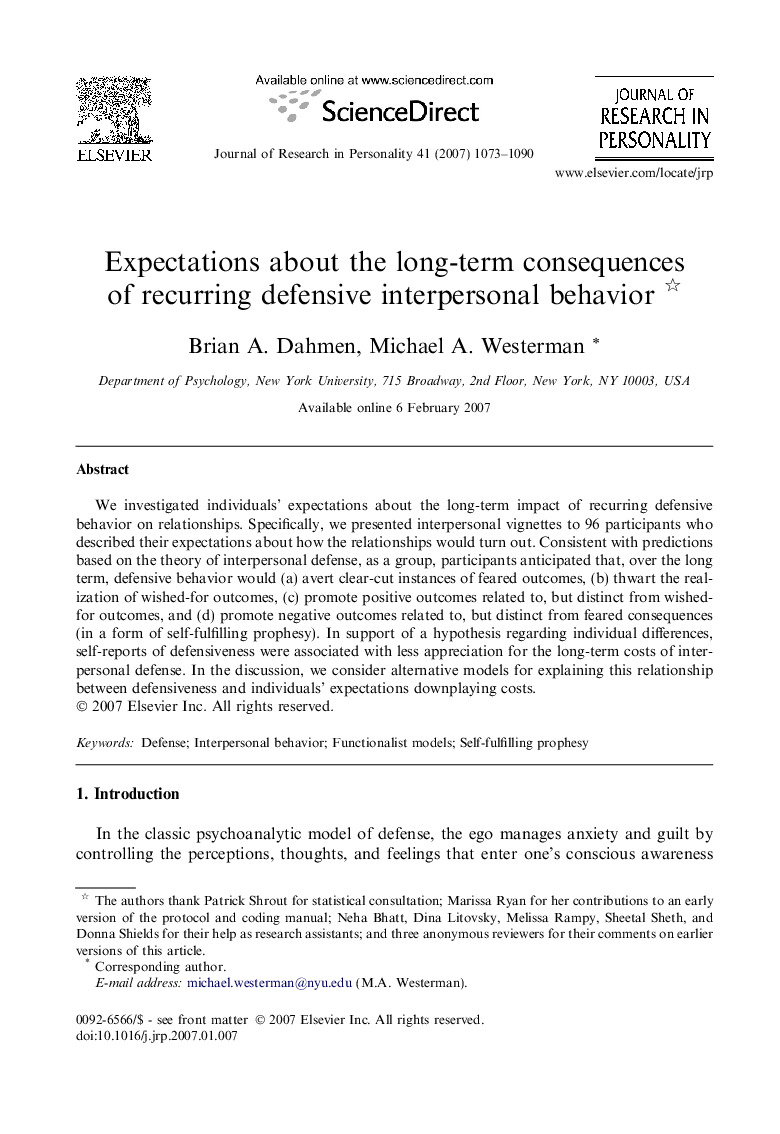| Article ID | Journal | Published Year | Pages | File Type |
|---|---|---|---|---|
| 951803 | Journal of Research in Personality | 2007 | 18 Pages |
We investigated individuals’ expectations about the long-term impact of recurring defensive behavior on relationships. Specifically, we presented interpersonal vignettes to 96 participants who described their expectations about how the relationships would turn out. Consistent with predictions based on the theory of interpersonal defense (Westerman, 1998, 2005; Westerman & Prieto, 2006; Westerman & Steen, in press), as a group, participants anticipated that, over the long term, defensive behavior would (a) avert clear-cut instances of feared outcomes, (b) thwart the realization of wished-for outcomes, (c) promote positive outcomes related to, but distinct from wished-for outcomes, and (d) promote negative outcomes related to, but distinct from feared consequences (in a form of self-fulfilling prophesy). In support of a hypothesis regarding individual differences, self-reports of defensiveness were associated with less appreciation for the long-term costs of interpersonal defense. In the discussion, we consider alternative models for explaining this relationship between defensiveness and individuals’ expectations downplaying costs.
